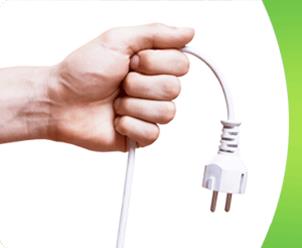sustainability@BUGeneva
It’s what you do
In line with Boston University’s sustainability drive the Geneva program has put into practice ten sustainability actions. Staff and students are asked to apply these practices while on the program to help the environment. Please read on and do your part to save the planet.
1) Bring Your Own Bottle or Thermos
The average American office worker uses 500 disposable cups a year. Americans throw away 2.5 million plastic bottles every hour. Help reduce this waste by using a reusable bottle or thermos.
2) Only print when necessary.
Nearly 900,000,000 trees are cut down annually to provide raw materials for American paper and pulp mills. Using 1- ton of recycled paper saves 380 gallons of oil, 3 cubic yards of landfill and 24 trees.
3) Turn Off the Lights
If you turn off the lights whenever you leave a room, you can reduce greenhouse gas emissions by 0.15 pounds per hour.
4) Reduce, Reuse, Recycle
We are consuming the resources of 1½ planets –while only having one to live on.
5) Unplug your power cords
Electrical appliances that are constantly plugged in, even if they are switched off, drain electricity that can account for as much as 10% of household energy use. Unplug items when they are not in use or switch off at the power strip.
6) Power down computers
Set computers to enter system standby or hibernate after 30 to 60 minutes of inactivity. You can save up to $75 or more per computer by doing this. Set monitors to enter sleep mode after 5 minutes of inactivity.
7) Take Shorter Showers
If you shorten your shower by 2 minutes, you can cut your water use by 10 gallons.
8) Eat Less Meat
Animal products with the highest CO2 emissions include lamb, beef, cheese and farmed salmon because producing them requires the most resources. Discarded food accounts for at least 20% on average of the emissions associated with meat and dairy products.
9) Wash Clothes at 40oC.
Most of the energy used to wash clothes, around 90%, comes from heating the water.
10) Be careful with heating. STOP CO2!
Keep your radiators on “3”. Wear warmer clothes. Sleep in pajamas and with more blankets. Air your room for 10 minutes once a day in the winter. Don’t leave windows and doors open.
 Performance indicators for sustainability
Performance indicators for sustainability











